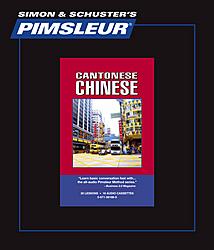Thu 24 Aug 2006
I previously wrote briefly about Steve Kaufmann incredibly speaking 9 languages fluently, English, French, Japanese, Mandarin, Spanish, Swedish, German, Cantonese and Italian.
Steve speaking Cantonese (15:29min) :
Steve does not practise or actively speak Cantonese anymore.
- note: first 10 seconds have audio problems
The following presentation was conducted by Steve Kaufmann in part English and Japanese. He offers very valuable advice on learning languages. I found it quite informative and a very useful resource:
| Video 1: 09:33min | Video 2: 09:54min | Video 3: 09:32min |

|

|

|
| Video 4: 08:16min | Video 5: 09:35min | |

|

|
|
Steve emphasises gaining vocabulary, while grammar is acquired naturally through massive input. After reading and watching as much material about Steve, he states the way to gain fluency is through gaining a large amount of vocabulary. In the above videos, Steve says you need to recognise and know how to use around 10,000 words in the correct situations to be adequately fluent.
Steve says “Vocabulary is much more important than grammar, by far, not even close! You have to have a lot of words. If you have enough words, you will speak.” He states that he never does grammar exercises and prefers to listen and read the same material over-and-over.
Studying grammar is counter productive; he continues to say, “If you have to think through a grammar rule, you will slow yourself down. You have to develop a reflex, and having the grammar rules is not going to develop that natural reflex.” You cannot improve by just speaking, you need to “upgrade” by reading and listening to new words and phrases. Speaking makes up a small portion of the learning process; as you need to absorb massive amounts through the listening process.


 Costing $295USD on Amazon, Pimsleur Cantonese comprises of 30 x 30min lessons teaching Cantonese solely through listening, repeating then anticipating responses.
Costing $295USD on Amazon, Pimsleur Cantonese comprises of 30 x 30min lessons teaching Cantonese solely through listening, repeating then anticipating responses.